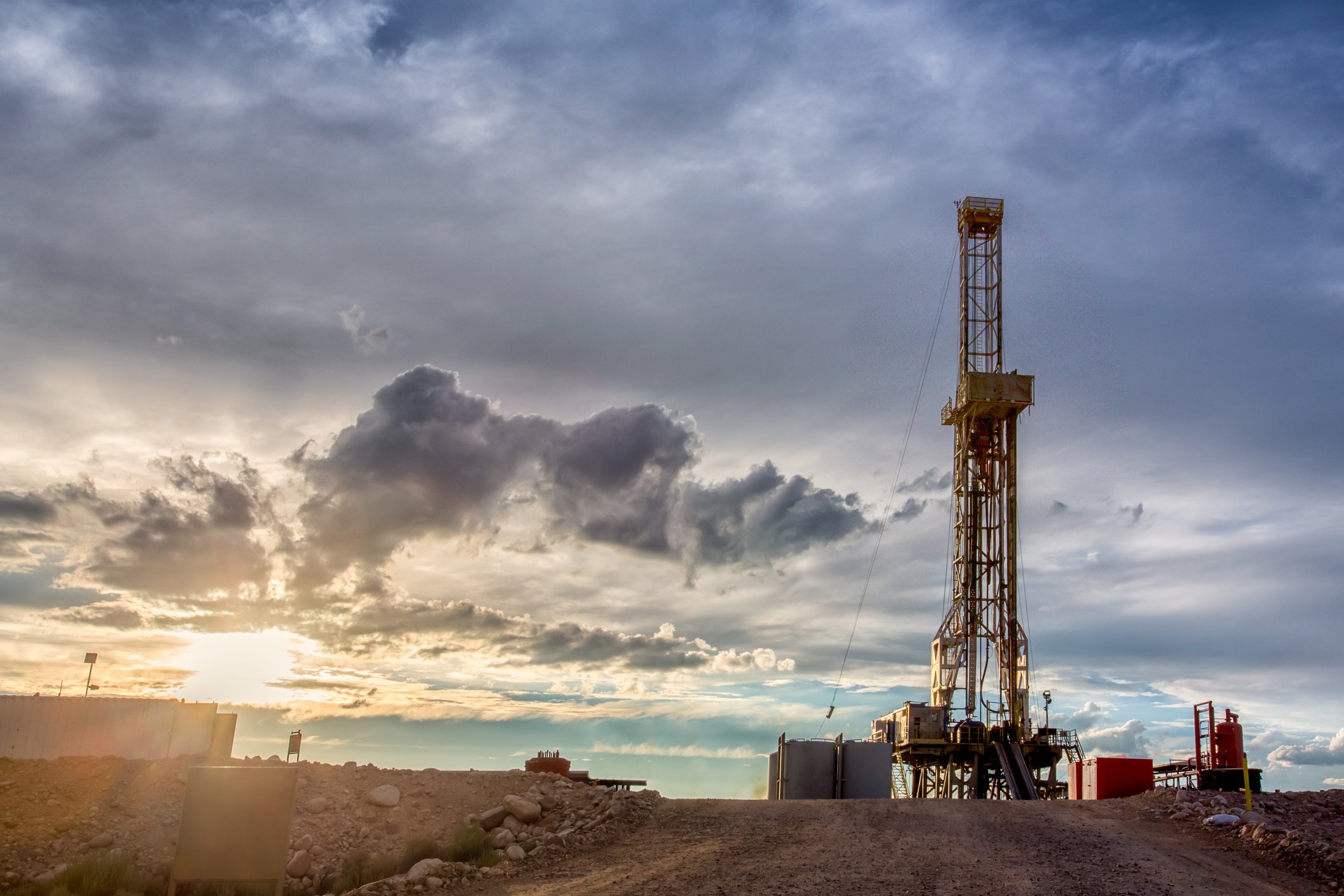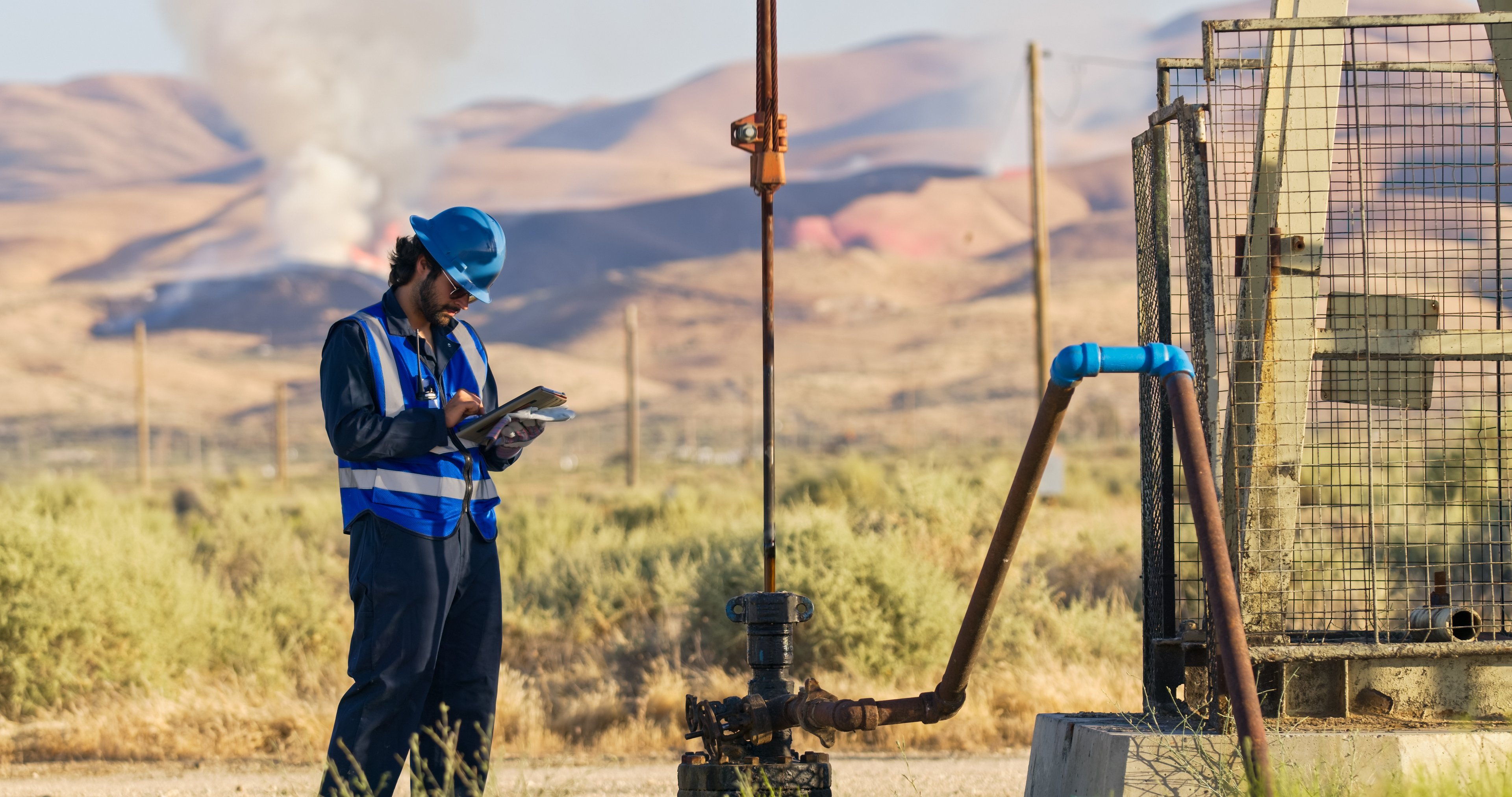While the price of natural gas has bounced around quite a bit over the past year, it's up about 10% overall. That higher price, when combined with an associated increase in production and lower costs, fueled big-time profits for Marcellus Shale-focused producers in the first quarter of this year. Given that gas prices remained rather steady in the second quarter, analysts anticipate that producers continued pulling in the profits. Here's a look at the current expectations for some of the Marcellus' leading producers as they get set to report second-quarter results in the coming weeks.
The industry leader is extending its lead
EQT Corp. (EQT +1.44%) cashed in on its Marcellus Shale position last quarter by producing $74.8 million of adjusted net income, or $0.43 per share, which was up nearly tenfold from the year-ago quarter. Fueling that strong result was a 6% increase in production and a 33% rise in realized prices. However, analysts don't expect to see quite such a robust result in the second quarter when it reports before the markets open on July 27, with the current consensus that the company will earn $0.09 per share. On the other hand, that would still be a significant improvement from the year-ago quarter when it reported a loss of $0.35 per share.

Image source: Getty Images
But what's even more important than those results is the strategic move the company made during the quarter to bolster its position in the Marcellus. After spending $650 million in the first three months of the year to add 67,000 acres in its core development area, the company is set to supersize its position after offering $6.7 billion to buy rival Rice Energy (NYSE: RICE). That deal will transform EQT into America's largest natural gas producer. Further, EQT expects that by combining with Rice Energy it will save $600 million in general and administrative expenses in the coming years, along with another $1.9 billion from capital efficiencies. Those two factors would significantly increase the company's future profitability even if gas prices don't improve, which is why investors should keep an eye out for anything that might derail this deal.
Ramping up amid higher prices
Cabot Oil & Gas (COG +0.59%) also delivered robust first-quarter results as adjusted net income ballooned to $89.1 million, or $0.19 per share, up from a $55.4 million loss in the year-ago period, thanks to higher realized natural gas prices. Given that prices remained robust during the second quarter, analysts expect that Cabot Oil & Gas will report $0.15 per share in earnings when it releases second-quarter results before the markets open on July 28, again reversing a loss in the year-ago period.
One other thing to watch this quarter is production guidance. Last quarter, Cabot Oil & Gas increased its full-year production growth guidance from a range of 5% to 10% to a new range of 8% to 12%, because of an "improved outlook for natural gas price realizations." Given that gas prices didn't disappoint in the second quarter, investors should look to see if Cabot sees any more upside to its 2017 guidance.
A temporary slowdown before reacceleration
Range Resources (RRC +0.61%) didn't disappoint when it reported first-quarter results in late April, delivering $61 million in adjusted net income, or $0.25 per share, which came in $0.06 per share ahead of expectations and well ahead of the year-ago loss of $0.10 per share. Analysts expect those profits to continue flowing in the second quarter, though they do see earnings coming down a bit, given that the current consensus is that the company will report $0.08 per share in profits when it releases results on Aug. 1, after the markets close.
However, that's partially because one of the processing plants handling its production is undergoing an upgrade to support Range's future growth. This downtime at the plant will affect Range's second-quarter production and earnings, though it will enable the company to grow production at a faster clip in future quarters.

Image source: Getty Images.
The expectations might be a bit too muted
Antero Resources (AR 0.22%), like its peers, delivered robust earnings growth in the first quarter. Adjusted net income was $56 million, or $0.18 per share, up 18% from the prior quarter, thanks to higher gas prices and production. Analysts, however, don't expect quite as much profit when the company reports second-quarter results on Aug, 2, after the markets close, given that the current consensus estimate is that it will earn $0.05 per share.
On the other hand, analysts last quarter expected that Antero would earn only $0.09 per share, which it blew past thanks to higher production and lower costs. There's good reason to believe it can do that again in the second quarter, since the company's production continues to grow, especially higher-margin liquids, which were up 45% last quarter. Those liquids will become increasingly important to the company once a major natural gas liquid (NGL) pipeline enters service later this year, because it will provide Antero with greater ability to export its NGLs to international markets and capture higher prices.
The calm before storming back
Given where gas prices were during the quarter, analysts expect that profits will continue to pour into the coffers of the Marcellus Shale's leading drillers, albeit at a lower rate than in the first quarter. But while the second quarter might be down because of infrastructure issues and other items, the future looks bright for drillers focused on this play, as a combination of consolidation transactions and future infrastructure enhancements should boost profitability even if gas prices don't go any higher. That outlook suggests that the Marcellus Shale can continue to be a profit driver for drillers in 2017 and beyond.









